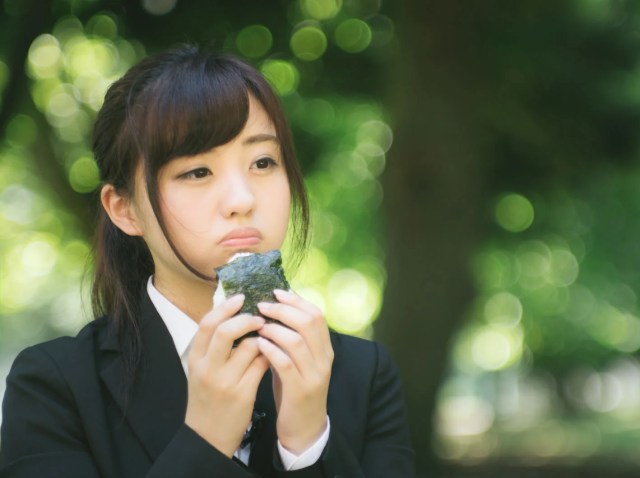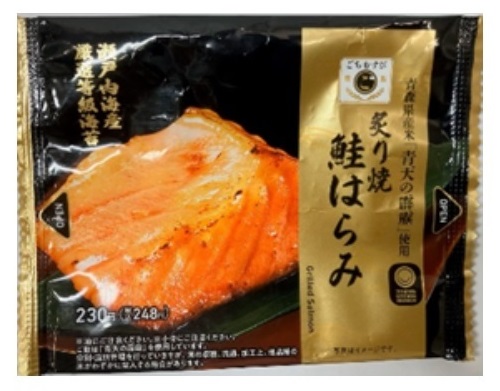Japanese convenience store issues rice ball recall, foodies would’ve loved to eat them anyway

Family Mart makes a mistake that still sounds so right (and delicious).
Food safety is of the utmost importance for convenience stores, so when Japanese chain Family Mart found out that a mistake had been made in the production of some of their rice balls (called onigiri or omusubi in Japanese), they were quick to issue a recall.
According to the apology posted to Family Mart’s official website on September 6, the recall affects up to 2,987 rice balls which were shipped to branches of the chain in Osaka, Kyoto, and Hyogo prefectures and offered for sale on September 5. Specifically, it’s the Gochimusibi Shakeharami, a premium 248-yen (US$1.70) rice ball with a thick cut of grilled salmon inside, that was recalled.
▼ The recalled rice ball’s packaging

So what was the problem? Well, as you can imagine, the primary ingredient in rice balls is rice. And sure enough, the list of ingredients on the Gochimusibi Shakeharami’s wrapping starts with gohan, the Japanese word for white rice. However, it came to Family Mart’s attention that a batch of the Gochimusibi Shakeharami hadn’t been made with gohan, and had instead been made with sumeshi.
What’s sumeshi? Vinegared rice.

“Wait a minute…vinegared rice? Like the kind used for making sushi?”, you might be asking. Yep, exactly. And if you’re thinking that doesn’t sound half bad, especially since the vinegared rice was pressed around a piece of seafood, you’re not alone, as Twitter reactions to Family Mart’s statement have displayed a level of positive interest that’s highly unusual for a food recall announcement.
“I…I can’t be the only one who thinks that sounds enticing and delicious, can I?”
“I’d totally eat that.”
“Sumeshi is usually more expensive than white rice too, so no problem.”
“Those sound great. Please sell them as regular items.”
“They could call them ‘o-mistake-ubi.’”
“Putting raw salmon or tuna in the center to make a sushi rice ball would be awesome!”
“As long as I knew that’s what I was getting, I’d buy them.”
That last comment is sort of the key issue, though. While vinegar allergies are rare in Japan, a company never wants to be inaccurate in telling customers what they’re going to be putting in their bodies when they consume their products, and no matter how mouthwatering the results may be, mistakes along the production line are always something that should be avoided. There’s also the fact that as tasty as sumeshi is, it’d probably be a frightening shock to bite into a rice ball expecting the mild flavor of regular white rice and get blindsided by the pronounced sour/sweet taste of vinegar without knowing the reason for it even after you checked the packaging’s ingredient list. And on a final point, the Gochimusibi Shakeharami are supposed to be made with premium Seiten no Hekireki rice grown in Aomori Prefecture, but the sumeshi that was mistakenly used was a different, ostensibly less prestigious variety.
However, none of that changes the fact that sumeshi rice balls honestly do sound like they’d taste really, really good, especially with Japan still in the middle of a fierce heat wave, so we’re keeping our fingers crossed that this mistake convinces Family Mart to whip up some more sumeshi rice balls, this time on purpose.
Source: Family Mart via Oricon News via Jin, Twitter/@oricon
Top image: Pakutaso
Insert images: Family Mart, Pakutaso
● Want to hear about SoraNews24’s latest articles as soon as they’re published? Follow us on Facebook and Twitter!
Credit:

0 comments:
Post a Comment